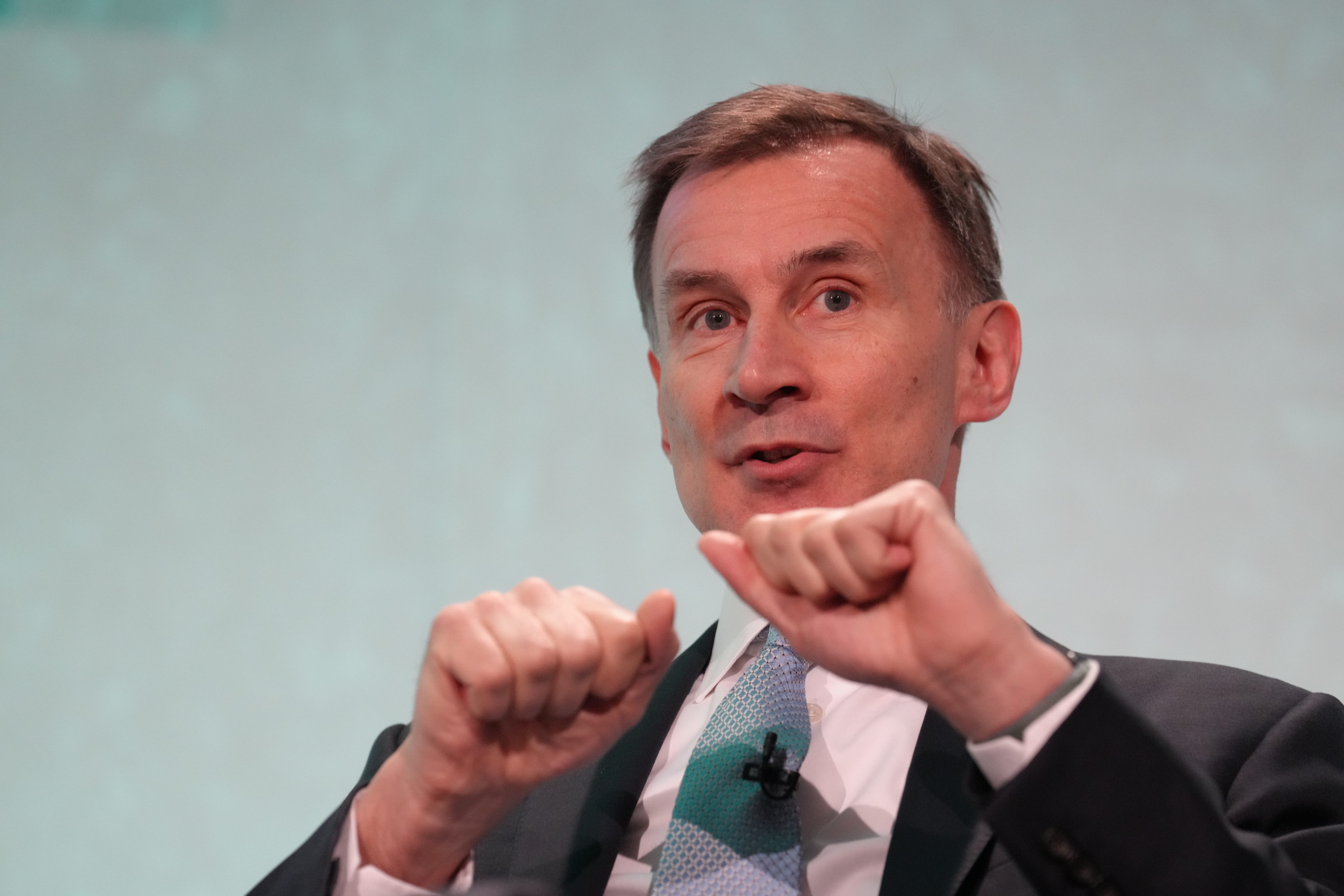Hunt claims tax rises needed to fund Labour’s £28bn green spending pledge
The Chancellor outlined what he claims would be required to support the package during Treasury questions in the House of Commons.

Income tax would need to rise by 4% to fund Labour’s £28 billion green spending pledge, according to Jeremy Hunt.
The Chancellor also claimed that an alternative approach to increase spending by £28 billion while sticking to fiscal rules would involve increasing corporation tax by 8%.
Mr Hunt’s remarks came as Labour leader Sir Keir Starmer said the funding package is “desperately needed” for his party’s mission to achieve clean power by 2030.
Labour originally promised in 2021 to invest £28 billion a year until 2030 in green projects if it won the next election.
But last year the party said the figure would instead be a target to work towards in the second half of a first parliament.
Conservative MP Harriett Baldwin, who chairs the Commons Treasury Committee, asked Mr Hunt during Treasury questions: “Could the Chancellor explain to the House, if he had an ambition to spend an additional £28 billion a year on something, what level of tax would that impose on ordinary households?”
Mr Hunt replied: “I thank her for asking that question. I’m curious as to where that figure £28 billion has come from.
“But, as she has asked it, I will tell her that to increase spending by £28 billion – if you’re going to stick to fiscal rules, as the party opposite claims they will do – it would mean increasing income tax by 4% or increasing the corporation tax they say they’re going to cap by 8%.”
Shadow chancellor Rachel Reeves last week promised “iron discipline” when it comes to sticking to a future Labour government’s fiscal rules, which include making sure government debt is falling.
Ms Reeves previously said Labour would be prepared to borrow to invest but only within her fiscal rules.
Labour has also said it would not increase the rate of corporation tax during its first term, with Ms Reeves saying the current 25% level “strikes the correct balance”.
Elsewhere at Treasury questions, Ms Reeves earlier raised concerns over mortgages.
She said: “Last week at Prime Minister’s Questions when asked about the Tory mortgage penalty, the Prime Minister boasted that someone coming off a fixed-rate mortgage deal would be able to save hundreds of pounds, but the small print was they had to add many years to their mortgage.
“Three million people are coming off fixed-rate mortgage deals this year and last. Does the Chancellor agree with the Prime Minister that British homeowners have never had it so good?”
Mr Hunt replied: “The way that we’re helping people with mortgages, families with mortgages, is not just through the Mortgage Charter – which is a lifeline to many families – but by bringing down inflation.
“And we’ve been having a few pops about Labour’s confusion over its £28 billion policy, but the real reason we’re against it is because going on a borrowing splurge pushes up inflation, pushes up interest rates, and makes mortgages more expensive.”
Ms Reeves countered: “It’s been under a Conservative Government that interest rates, inflation and mortgage costs have gone up. This Government needs to take responsibility.”
The shadow chancellor asked Mr Hunt to explain what he would say to those voters in next week’s by-elections in Wellingborough and Kingswood who are paying more on their mortgages.
Mr Hunt said: “Responsible, difficult decisions, the vast majority of which the shadow chancellor opposed, have seen the inflation rate more than halve and interest rates likely to have peaked.”
He added: “We’re doing everything we can to help bring down mortgage rates, but the £28 billion borrowing spree will make them worse, not better.”
Bookmark popover
Removed from bookmarks